2 min read
Gospel-Centered from the Start
“Let us hold unswervingly to the hope we profess, for He Who promised is faithful…Jesus Christ is the same yesterday, today, and forever.” (Hebrews...
People with strong support systems don’t usually end up in homeless shelters.
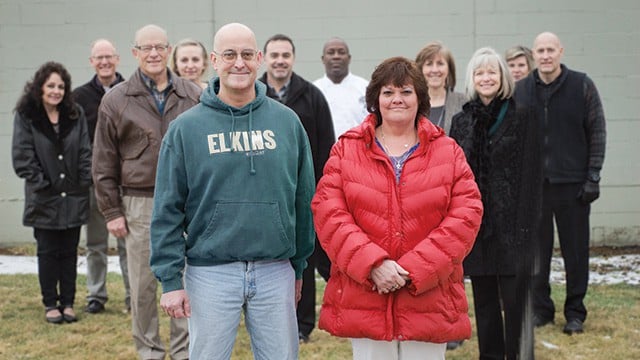
The men, women and children coming through our doors are the products of divorce, family breakdown, abuse, generational poverty and addiction. Thanks to you, within our shelters they find a new kind of family – unconditional love and belonging combined with complete accountability.
But they can’t stay here forever.
Their long-term success depends upon their building a solid base of support outside UGM. They need to surround themselves with healthy, caring people.
People like you.
Three years ago, Patty Worth was living in a tent in California.
Three years before that, she lost her dad. A friend suggested coupling psychiatric medication with alcohol to get over her grief. “I never was a drinker, so within three years, I lost my home, and I was living in a tent.”
Patty eventually moved to Washington where her addiction landed her at the UGM Crisis Shelter.
Getting sober took several attempts. “I got wasted at the shelter and ended up in ICU…I gave it all to God that day.”
Sober does not equal cured.
Patty transitioned to Women’s Recovery at Anna Ogden Hall and recently completed the first four phases of the program. She has been sober for over two years, has a job at the UGM Thrift Store and is getting ready to move into her own place.
For the past several months of this journey, Julie Ingram has been walking alongside Patty in the role of mentor.
“Julie is one of my number-one fans,” Patty said. “She is there for anything and everything that I need. She’s my mentor, but she is my friend.”
Patty and Julie’s relationship has developed naturally.
“I think I am a good sounding board for Patty,” Julie said. “I give her different perspectives on things, calm her down when she is stressed or frustrated, encourage and praise her growth.”
Doesn’t everyone need someone like that in his/her life?
Patty thinks so. “[Julie] has been very much of a blessing in my life – spiritually, emotionally, physically. I appreciate how her family has accepted me as a part of their family. I just feel very loved, and I love her very much. She’s very dear to my heart.”
Ten years ago, Brent Magarrell was a mover and a shaker in corporate America. By his own admission, however, he had the emotional maturity of a child.
“I was not in a healthy enough place – particularly emotionally – to even know what I was feeling, much less, share that. I was damaged in a way that I would not admit, and I did not have any skill or experience in even knowing what it was like to be angry, knowing what it was like to be fearful…I could do all these wonderful things with computers, but that particular skill of identifying how I felt and letting it go is something I had never done in my life.”
Brent’s repressed feelings led to depression and addiction.
When he was told he had stage-three cancer, he realized he had no idea how to cope.
“There is huge emotional grieving that needs to be done when you’re going through something like that because…all of a sudden, you go from some level of thriving to – on a good day – concentrating on breathing and having a bowel movement, and if you do those successfully, that’s a good day. That totally changes your whole view…There was so much pain and fear and loss of what I could’ve done or what I should’ve done, that I didn’t have the skills to process…I could not get in touch with my emotions.”
Like Patty, Brent has finished the first four phases of UGM Recovery and is preparing to move out. At the core of what he’s learned, Brent said, is the importance of being intentional about relationships.
“It is a need that I believe God built into us. We are made to connect with Him and with others. I cannot be a healthy person. I cannot follow what God wants me to do, how he made me, without those relationships.”
Brent’s mentor, Shane Sorey, is one of those relationships. The two of them are committed to developing an honest, authentic friendship, where both are free to share their struggles and brokenness. That’s something, Brent said, that “doesn’t come by every day.”
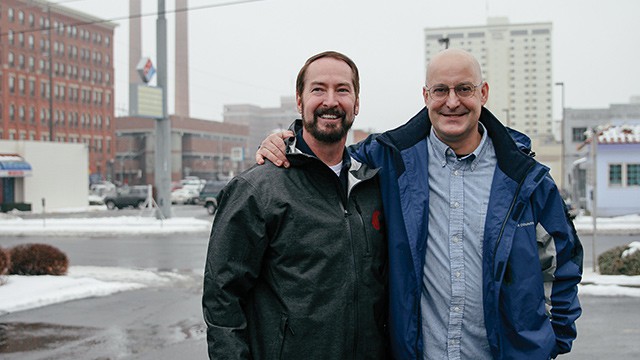
“You don’t hook up with a person that you can be honest, that you can share your life secrets, your past pains, your future goals, dreams and aspirations and do it in a supportive way and have interdependency to where it’s not, ‘Hey, this person is there for me, and I suck them dry, but I don’t give anything back to them.’ No, a healthy relationship has interdependence.”
Healthy, interdependent, authentic relationship – that’s what the UGM mentor program is all about. Intrigued? call 509-532.3850.
Sound like you? Click below to get started.

2 min read
“Let us hold unswervingly to the hope we profess, for He Who promised is faithful…Jesus Christ is the same yesterday, today, and forever.” (Hebrews...

9 min read
To celebrate 75 years of serving the Inland Northwest, we are spending the year remembering our history and the faithfulness that built us and...

2 min read
In 2026, Union Gospel Mission Inland Northwest is approaching our 75th Anniversary! This is a milestone that invites gratitude and reflection, and...
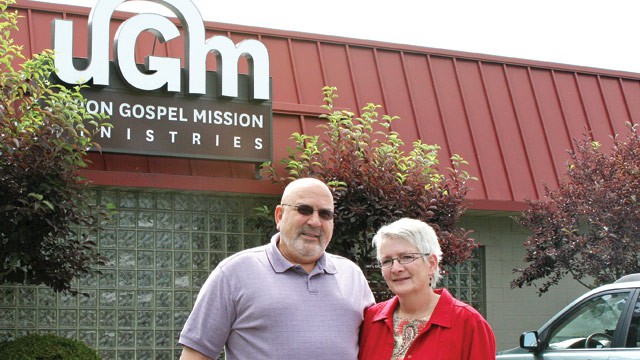
1 min read
Bill and Jan Traynor were mentors before UGM had a mentor program. Several years ago they and other members from their church were preparing and...
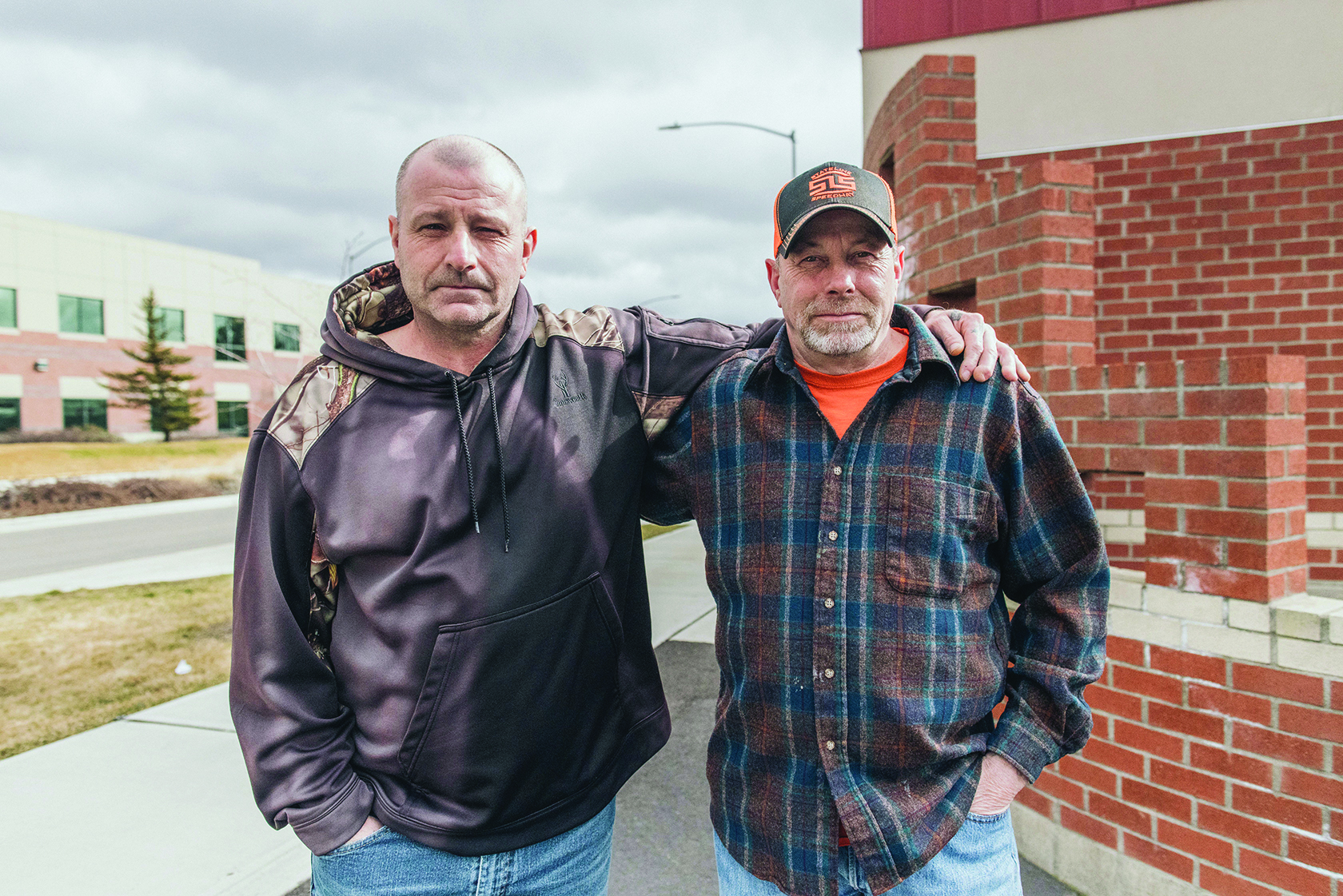
Connected for LifeA Mentor Feature Whole-person recovery isn’t a single decision, a season of sobriety or even completion of a 16-month program; it’s...
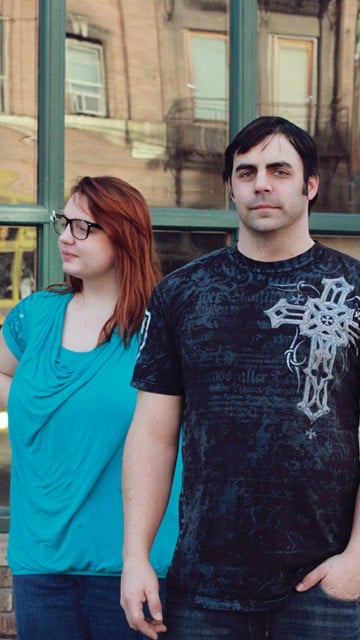
You showed us the love and power of the gospel. You broke the cycle. “I used to be one of those teenagers who just didn’t care about anything. I went...